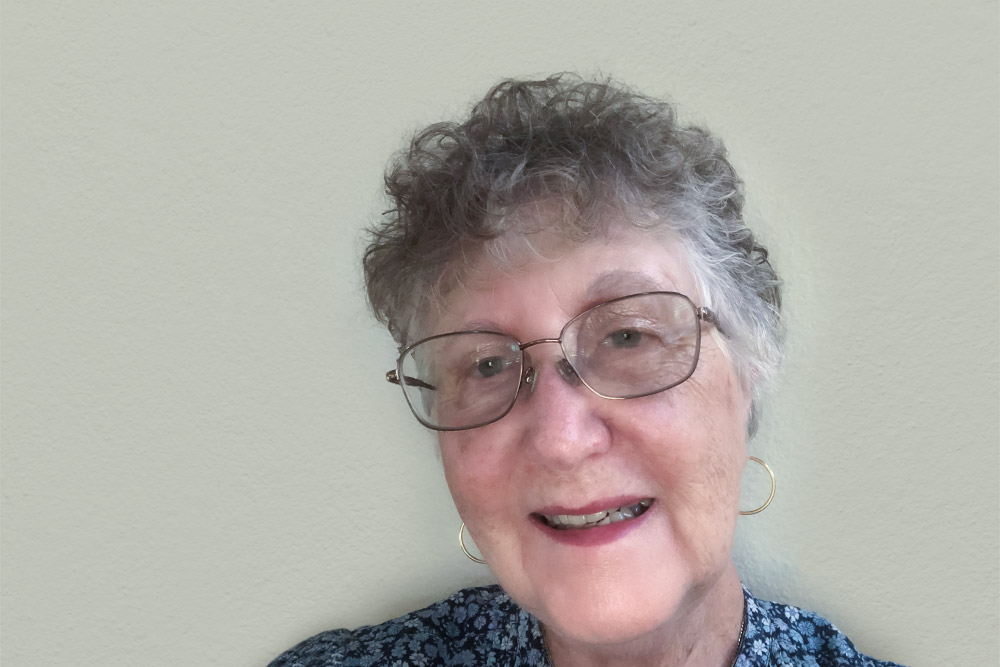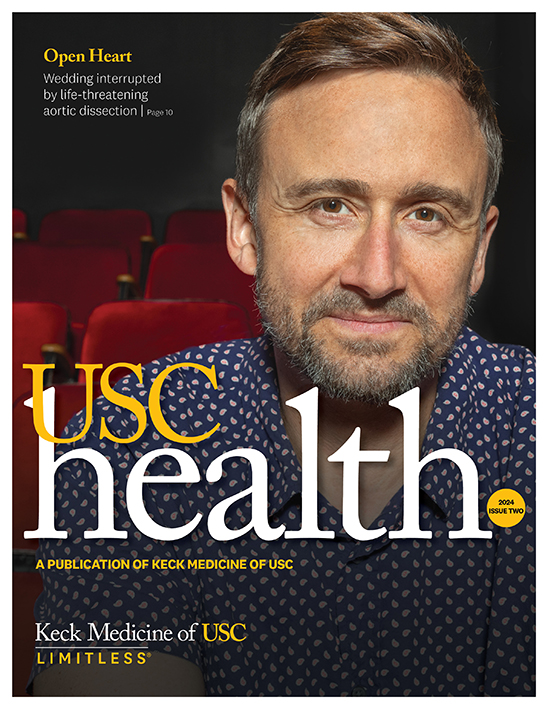
USC Norris Comprehensive Cancer Center experts guided a 79-year-old woman through triple-negative breast cancer.
Shirley Gallagher ended up in an urgent care near her home in Irvine because she had a cat scratch on her breast that wouldn’t heal. The urgent care referred her to a breast specialist who suggested she get a mammogram because it had been a few years since her last screening. That mammogram turned up some unexpected and unnerving news: Shirley had a type of breast cancer known as triple-negative breast cancer.
“I was absolutely shocked,” says Shirley. “In a way, that cat saved my life.”
After her surprise diagnosis, Shirley was referred to An Nguyen, MD, a medical oncologist with the USC Norris Comprehensive Cancer Center, part of Keck Medicine of USC, who practices in Orange County. He explained to Shirley that triple-negative breast cancer is one of the least common and more aggressive subtypes of breast cancer.
Treating stage 1 triple-negative breast cancer
Shirley was lucky in one respect, according to Dr. Nguyen. The mammogram and a subsequent breast ultrasound discovered her cancer while it was still in an early stage, stage 1. Because triple-negative breast cancer is aggressive, patients have best outcomes when the cancer is discovered in its early stages and treatment begins as quickly as possible.
At the USC Norris Comprehensive Cancer Center, one of the first steps is to gather a team of specialists that may include medical oncologists, radiation oncologists, surgeons, plastic surgeons and genetic counselors. The team, led by Dr. Nguyen, analyzed Shirley’s tumor, the stage of her cancer and other health concerns to come up with a plan tailored to her unique needs.
Breast cancer treatment at 79 years old
One concern was Shirley’s age because she was 79 at the time of her diagnosis in 2021. Dr. Nguyen noted the latest research supports that the first step for patients with triple-negative breast cancer is to give them chemotherapy and immunotherapy. Because of Shirley’s age, he lowered her dose of chemotherapy and monitored her a little more closely than younger patients to figure out if she could tolerate the treatment.
“We wanted to be a little cautious, but she actually did quite well with it,” Dr. Nguyen says.
After chemotherapy, Shirley also underwent a lumpectomy and radiation treatment. She continued immunotherapy for a year after completing all the other treatments. Dr. Nguyen notes that immunotherapy helps to stave off cancer recurrence for patients with triple-negative breast cancer, but not necessarily other types of breast cancer.
New treatments in breast cancer
Though Shirley’s treatment ended in 2023, she still has regular follow-ups. Among the ways Dr. Nguyen continues to monitor Shirley’s condition is by testing her blood for signs of a recurrence. This type of test is relatively new, according to Dr. Nguyen, and is a much-needed improvement over earlier tests that found new tumors after the cancer had spread.
Some of the treatment I got had just become available, and he knew all about what was new and what was going to be helpful for me.
Shirley Gallagher, patient of An Nguyen, MD, USC Norris Comprehensive Cancer Center
“We are testing her for evidence of recurrence in her blood, which detects potential recurrence before it can be detected by CT or PET scans,” Dr. Nguyen says. “The earlier you can detect cancer, the more options we have to intervene.”
Shirley notes that given her surprise diagnosis, she landed in Dr. Nguyen’s care rather accidentally. It has been a happy and comforting accident for her.
“Some of the treatment I got had just become available, and he knew all about what was new and what was going to be helpful for me,” Shirley says. “I think the world of him, and I am extremely lucky that I just kind of fell into his care by chance.”
Topics


